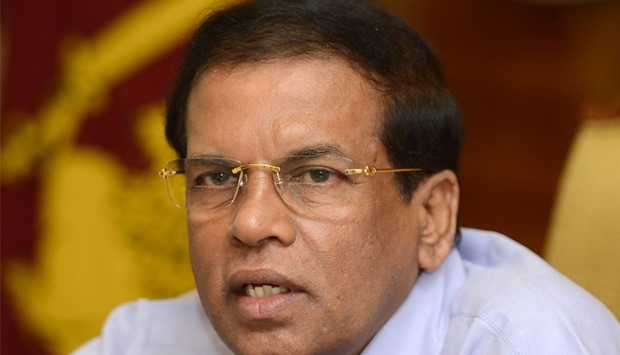Sri Lanka's president reshuffled his cabinet on Sunday, appointing his prime minister as the law and order minister, after the governing coalition suffered a series of defeats in local elections earlier this month.
The governing coalition of the Sri Lanka Freedom Party (SLFP) and the United National Party (UNP) blamed the defeats at least partly on its lack of progress in several anti-corruption investigations.President Maithripala Sirisena, the leader of the SLFP, and Prime Minister Ranil Wickremesinghe, the head of UNP, won office by promising to investigate corruption under the previous government, led by Mahinda Rajapaksa.
But critics charge the investigations slowed under Sagala Ratnayaka, the previous law and order minister, and he will be replaced by Wickremesinghe, who will also remain prime minister.
Sirisena said more changes could be expected within the SLFP in the next two weeks.
The corruption investigations have focused on family members of Rajapaksa, now a legislator on the opposition benches. They face allegations ranging from misappropriation of state properties to unexplainable assets.
Two of Rajapaksa’s sons, Namal and Yoshitha, have been arrested and released on bail over money-laundering allegations.
One of his brothers, Basil, who headed the economic development ministry, has also been arrested at least three times, twice over suspicion of misuse of anti-poverty funds and once over suspicion of laundering money. He is free on bail.
All the Rajapaksas deny wrongdoing.
The government has yet to fulfil the promises it campaigned on. Those include a new constitution aimed at devolving some powers to provincial governments dominated by ethnic minorities, facilitate an international probe into alleged war crimes in the final phase of Sri Lanka's war against the Tamils, and fiscal discipline efforts sought by the International Monetary Fund.
Nationwide elections are not due until 2020.



